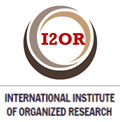Occupational health and psychology, ¿Quo vadis?
Keywords:
occupational health, industrial psychology, occupational health servicesAbstract
Occupational health focuses on achieving the most complete state of physical, mental and social well-being at work. The occupational health psychology is the contribution of psychology to improve the quality of working life, protect and promote safety, health and well-being of workers. Currently, both occupational health and psychology of occupational health undergoing a transition to move from a traditional model that focuses primarily on the disease or negative aspects on the health of workers, for instance the work stress, moving to a holistic and integrated approach that takes into account positive aspects such as the quality of working life, happiness and well-being at work. In this sense, the objective of this paper is to argue the importance of applied psychology to occupational health, outlining their characteristics and future trends, opening a wide range of opportunities for occupational health psychology.Downloads
References
World Health Organization. Declaration on Workers' Health. Geneva: WHO; 2006.
Gastañaga M. Salud ocupacional: Historia y retos del futuro. Revista Peruana de Medicina Experimental y Salud Pública. 2012;29(2):177-8.
Houdmont J, Leka S. Contemporary Occupational Health Psychology. London: SOHP-EAOHP-Wiley-Blackwell; 2010.
Organización Mundial de la Salud. Conferencia Sanitaria Internacional. Nueva York: Organización Mundial de la Salud; 1948.
Thébaud-Mony A. La santé: enjeux d'une définition. Prévenir. 1996;30:5-7.
Cox T, Baldursson E, Rial-González E. Occupational health psychology. Work & Stress. 2000;14(2):101-4.
Gómez I. Salud laboral: Una revisión a la luz de las nuevas condiciones del trabajo. Universitas Psicológica. 2007;6(1):105-13.
Salanova M. Psicología de la salud ocupacional. Madrid, España: Editorial Síntesis; 2009.
Arias G. Revisión histórica de la salud ocupacional y la seguridad industrial. Revista Cubana de Salud y Trabajo 2012;13(3):45-52.
International Labour Office. Psychosocial factors at work: recognition and control. Geneva : ILO; 1986.
International Labour Office. Preventing stress at work. Geneva: ILO; 1992.
Organización Internacional del Trabajo. La organización del trabajo y el estrés. Ginebra: OIT; 2004.
Gabriel P. Mental health in the workplace: Situation, analyses. United States: Cornell University ILR School; 2000.
Daubas-Letourneux V, Thébaud-Mony A. Estudio acerca de la organización en el trabajo y salud en la Unión Europea. Dublín: Fundación Europea para la Mejora de las Condiciones de Vida y de Trabajo; 2003.
Velázquez F. Mobbing, violencia física y estrés en el trabajo. España: Ediciones Gestión; 2004.
Organización Mundial de Salud. El programa de salud ocupacional de la Oficina Central de la Organización Mundial de Salud (OMS). GOHNET. 2003;5:1-2.
Organización Mundial de Salud. Salud de los trabajadores: proyecto de plan de acción mundial. Ginebra: OMS; 2007.
Organización Internacional del Trabajo. Seguridad y salud en el trabajo (Internet) [citado 12 Feb 2014]. Disponible en: http://www.ilo.org/global/topics/safety-and-health-at-work/lang--es/index.htm.
World Health Organization. Declaration on Occupational Health for All. Geneva: WHO; 1994.
World Health Organization. Global Strategy on Occupational Health for All. The Way to Health at Work. Geneva: WHO 1995.
Molano V, Arévalo P. De la salud ocupacional a la gestión de la seguridad y salud en el trabajo: más que semántica, una transformación del sistema general de riesgos laborales. INNOVAR. Revista de Ciencias Administrativas y Sociales. 2013;23(48):21-31.
Schaufeli W. The future of Occcupational Health Psychology. Applied Psychology: An International Review. 2004;53(4):502-17.
Juárez-García A. Psicología de la salud ocupacional: área de oportunidad en México. Revista de Salud Pública y Nutrición. 2007;8(3):1-2.
Salanova M, Martínez I, Llorens S. Una mirada más “positiva” a la salud ocupacional desde la psicología organizacional positiva en tiempos de crisis: aportaciones desde el equipo de investigación WoNT. Papeles del Psicólogo. 2014;35(1):22-30.
Wilson M, Dejoy D, Vandenberg R, Richardson H, McGrath A. Work characteristics and employee health and well-being: Test of a model of healthy work organizations. Journal of Occupational and Organizational Psychology. 2004;77:565-88.
Hermosa A, Perilla L. Retos investigativos en psicología de la salud ocupacional: el estrés laboral. Revista de la Facultad Nacional de Salud Pública. 2015;33(2):252-61.
Tetrick L, Campbell J. Prevention at work: Public health in occupational settings. In: Quick J, Tetrick L, eds. Handbook of O ccupational Health Psychology. Washington: APA; 2003. p. 3-18.
Blustein D. The role of work in psychological health and wellbeing. A conceptual, historical and public policy perspective. Am Psychol. 2008;63(4):228-40.
Downloads
Published
How to Cite
Issue
Section
License
Aquellos autores/as que tengan publicaciones con esta revista, aceptan los términos siguientes:- Los autores/as conservarán sus derechos de autor y garantizarán a la revista el derecho de primera publicación de su obra, el cuál estará simultáneamente sujeto a la licencia Creative Commons Reconocimiento-NoComercial-CompartirIgual 4.0 Internacional (CC BY-NC-SA 4.0) Esta licencia permite a otros compartir el trabajo con un reconocimiento de la autoría del trabajo y la publicación inicial en esta revista (componente BY o atribución). Coincidente con la política de Acceso Abierto, no se podrán hacer usos comerciales de los contenidos publicados por esta revista (componente NC). Se permitirán las obras derivadas (remezcla, transformación o creación a partir de la obra original), siempre y cuando sean distribuidas bajo la misma licencia de la obra original (componente SA).
- Los autores/as podrán adoptar otros acuerdos de licencia no exclusiva de distribución de la versión de la obra publicada (p. ej.: depositarla en un archivo telemático institucional o publicarla en un volumen monográfico) siempre que se indique la publicación inicial en esta revista.
- Se permite y recomienda a los autores/as difundir su obra a través de Internet (p. ej.: en archivos telemáticos institucionales o en su página web) antes y durante el proceso de envío, lo cual puede producir intercambios interesantes y aumentar las citas de la obra publicada. (Véase El efecto del acceso abierto).






